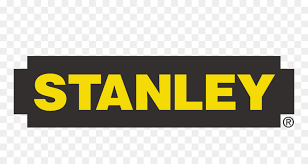Stanley Black and Decker Settles OFAC Enforcement Action for $1.9 Million

Stanley Black and Decker (“Stanley”) and its Chinese subsidiary Jiangsu Guoqiang Tools Co. (“GQ”) agreed to pay approximately $1.9 million to settle OFAC charges that it violated the Iran Sanctions Program. The OFAC enforcement action was the fifth in 2019. Stanley voluntarily disclosed the apparent violations to OFAC. See Here for a copy of OFAC Enforcement Action.
Between June 2013 and December 2014, GQ exported or attempted to export 23 shipments of power tools and spare parts to Iran with a total value of more than $3.2 million.
Stanley initiated acquisition negotiations with GQ in 2011. During the pre-acquisition due diligence process, Stanley discovered GQ’s exports to Iran. Stanley conditioned its acquisition of GQ on termination of Iran transactions.
In May 2013, Stanley acquired a 60 percent interest in GQ and created a joint venture with GQ. After the acquisition, Stanley conducted sanctions and export compliance training. In early August 2013, a Stanley China employee reviewed the company’s trade compliance policies and procedures with GQ’s Manager for Export Sales by telephone. After this one training session, the individual who conducted the training asked the GQ Manager for Export Sales to provide the same training to her team within GQ, and to designate two members of her team to attend additional training on a customer screening tool.

In a familiar scenario this year in OFAC enforcement actions, GQ continued to engage in transactions with Iran customers. Furthermore, Stanley did not implement procedures to monitor or audit GQ’s operations to ensure that its Iran-related sales did not recur post-acquisition. Despite written certifications and assurances, and notwithstanding the training sessions conducted by Stanley, GQ continued to export goods to Iran throughout 2013 and 2014
After learning about the continuing violations, Stanley eventually conducted an internal investigation and discovered that GQ employees sought to hide exports to Iran by using six trading companies (4 United Arab Emirates companies and 2 Chinese companies) and fake bills of lading with incorrect ports of discharge and places of delivery. Stanley reported the matter to OFAC.
Stanley’s internal investigation confirmed that GQ board members and senior management participated in these activities while knowing that its conduct violated Stanley’s policies and US economic sanctions.
Stanley implemented enhanced compliance controls to ensure that it adhered to a culture of compliance, conducted regular risk assessments to ensure that its internal controls appropriately mitigated sanctions risks, conducted regular audits, and provided ongoing sanctions compliance training.
The Stanley enforcement action underscores the importance of pre-acquisition due diligence and post-acquisition confirmation of compliance with economic sanctions. Companies have to take appropriate steps to audit, monitor and verify newly-acquired subsidiaries and affiliates for OFAC compliance.

OFAC explained:
U.S.-owned or -controlled foreign subsidiaries are subject to the ITSR and U.S. person parent companies may face potential exposure to civil monetary penalties vis-à-vis the actions of their foreign subsidiaries. Foreign acquisitions can pose unique risks that U.S. person parent companies need to address fully at all stages of its relationship with the subsidiary. U.S. parent companies are encouraged to take steps to mitigate risk to sanctions exposure, including by addressing known deficiencies like unconventional record-keeping practices, and any hindrances to monitoring, auditing, or investigating the foreign subsidiary’s operations. Testing of compliance procedures and timely auditing of subsidiaries can mitigate the risk of exposure to U.S. economic sanctions violations.














